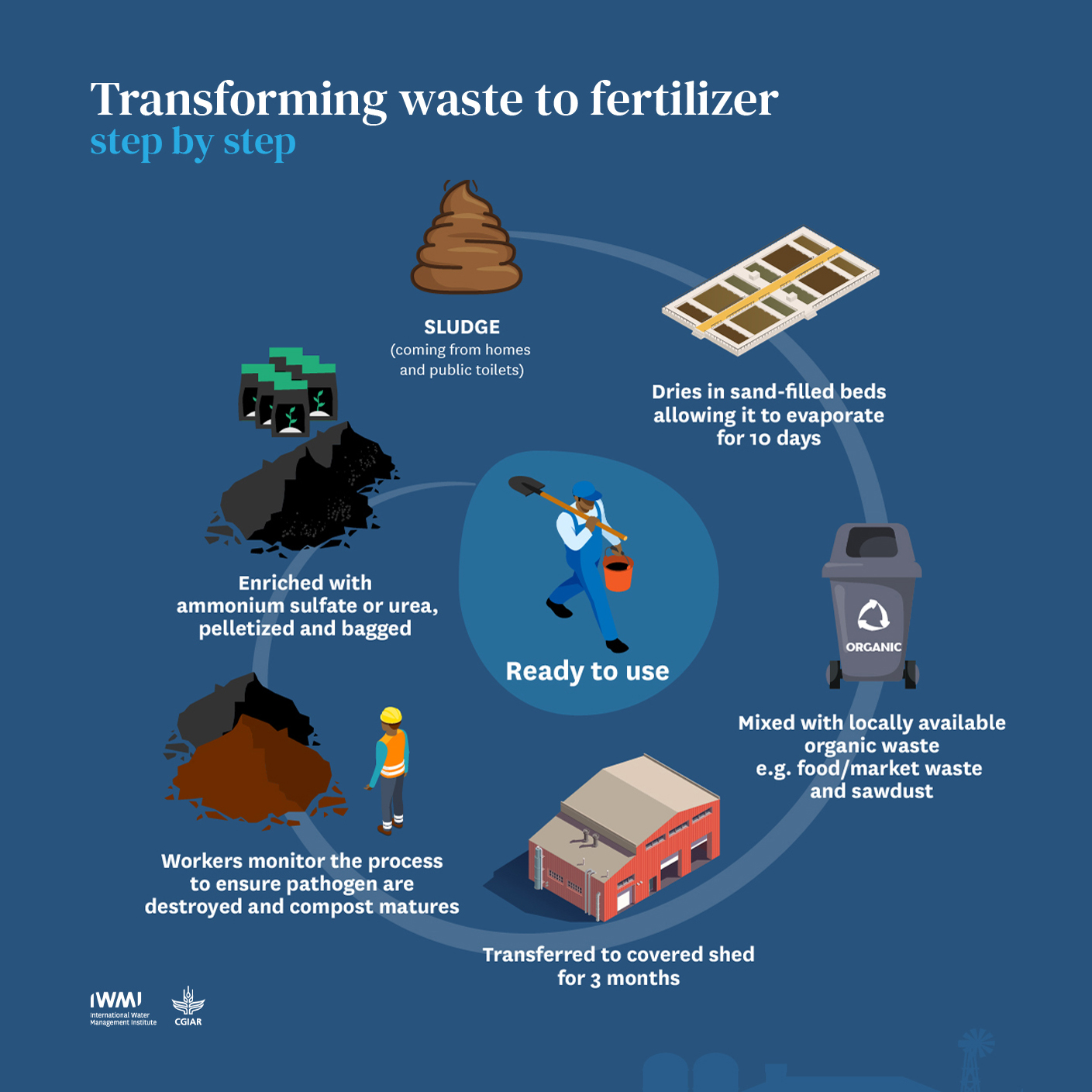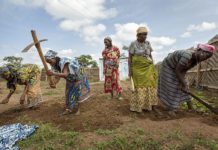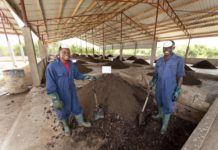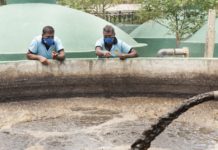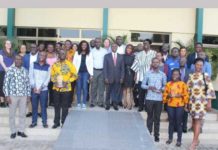Transforming human waste into an economic opportunity in Ghana
Imagine if the human waste we produce every day could be put to productive use, and even had economic value?
In Ghana, an innovative initiative led by the International Water Management Institute (IWMI) has been devising ways to extract economic value from a material — human excreta — considered useless across much of the world. In this West African country of more than 30 million people, a significant share of human waste is discharged into waterways surrounding villages, peri-urban areas, and cities — often barely treated. But sanitation experts, policymakers, and community leaders believe they may have landed on a solution with transformative potential.
Seventy six per cent of households
in Ghana drink water that is contaminated with faecal matter.
Island on the Volta Lake, Ghana. Photo: Hamish John Appleby / IWMI
Gauging the extent of Ghana’s urban health challenges
As Ghana continues to experience rapid urbanization, significant strain has been placed on the limited sanitation and wastewater disposal infrastructure in the country’s cities. Consequently, the discharge of fecal sludge and untreated wastewater into local waterways has become commonplace, not only posing threats to environmental health — untreated wastewater contains high nutrient loads that degrade water quality — but also threatening human health as well.
Each day, humans excrete in the order of 30 grams (g) of carbon, 90 g of organic matter, 10-12 g of nitrogen (N), 2 g of phosphorus (P) and 3 g of potassium (K). Most of the organic matter is contained in the feces, while most of the N (90%) and P (70-80%) is contained in urine. Potassium is distributed equally between urine and feces.
“Most health challenges come from poor sanitation,” observes Olufunke Cofie, an IWMI Principal Researcher and Country Representative in Ghana. “Diarrhea, and diseases like cholera, dysentery — they are a result of poor sanitation. If we can improve sanitation and remedy hygiene challenges, then certainly we will see positive health outcomes.”
Meanwhile, fast-growing urban areas in Ghana and elsewhere face related challenges as well. As cities become vast nutrient sinks due to limited wastewater treatment capacity, for example, pollution of local water sources can deepen freshwater scarcity issues, particularly in cities across the Global South.
But cities have the ability to reduce such pollution if innovative solutions are explored, particularly those involving circular economy approaches. Such approaches encourage closed loop thinking, which means nutrients are returned to the soil and utilized, rather than simply pumped into waterways or the sea.
Water is at the very center of climate change. Climate change is water change. And water is, of course, very much related to sanitation. The key challenge is the scarcity of water, as sanitation practices are limited. How do we wash our hands or clean feces without water? We must consider mitigation and adaptation when it comes not only to climate change, but also to water treatment.
Olufunke Cofie
Indeed, in lower-income countries, many affordable options exist to support the use of reclaimed water and treated fecal sludge for productive purposes. And in Ghana, recycling reusing wastewater and recycling fecal sludge is not only good for the environment, it is necessary for the country. The majority of Ghanaian farmers struggle with soils that are poor in nutrients and organic matter.
In peri-urban and rural areas, some farmers attempt to tackle this problem by applying human waste directly onto their fields as a raw form of fertilizer, following traditional practices. But these practices pose potential health risks when the microbial contaminants (pathogens) within the untreated waste come into contact with crops grown for food, increasing the likelihood of illness among consumers.
How IWMI has harnessed outside-the-box thinking to create a durable solution
Over the course of 12 years of research, IWMI, along with the recently concluded CGIAR Research Program on Water, Land and Ecosystems (WLE) and other partners, have refined an idea that promises to transform human waste into a safe fertilizer to facilitate agricultural production. So how does it work?
First, fecal sludge is taken from household and public toilets and passed through a multistep treatment process whereby the fecal sludge is allowed to dry naturally to solids while the liquid portion passes through a sand filter before it is released back into the local environment.
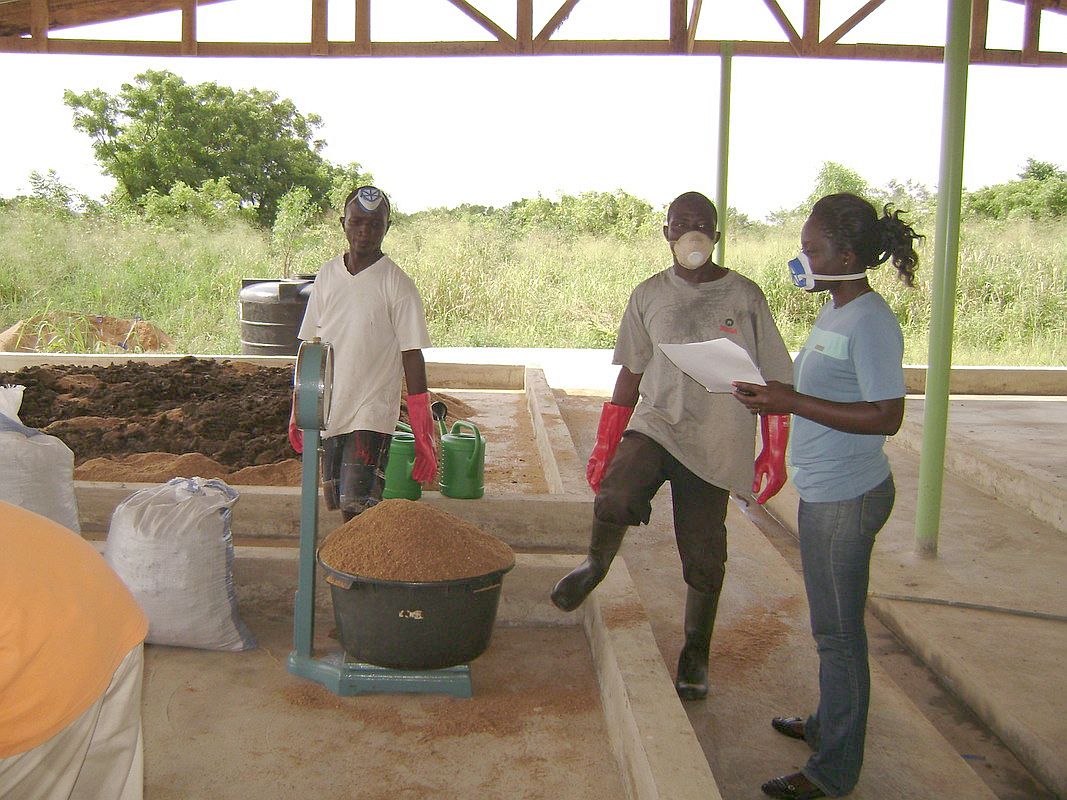
The remaining nutrient-rich, dry solids are then mixed with organic food waste. The decomposition of this mixture (produced via co-composting) is facilitated through a process of heaping and regular turning, allowing for good aeration which aids the decomposition process. Crucially, the decomposition process also naturally generates heat, which is hot enough to destroy pathogens in the waste. This sanitizes the waste mix.
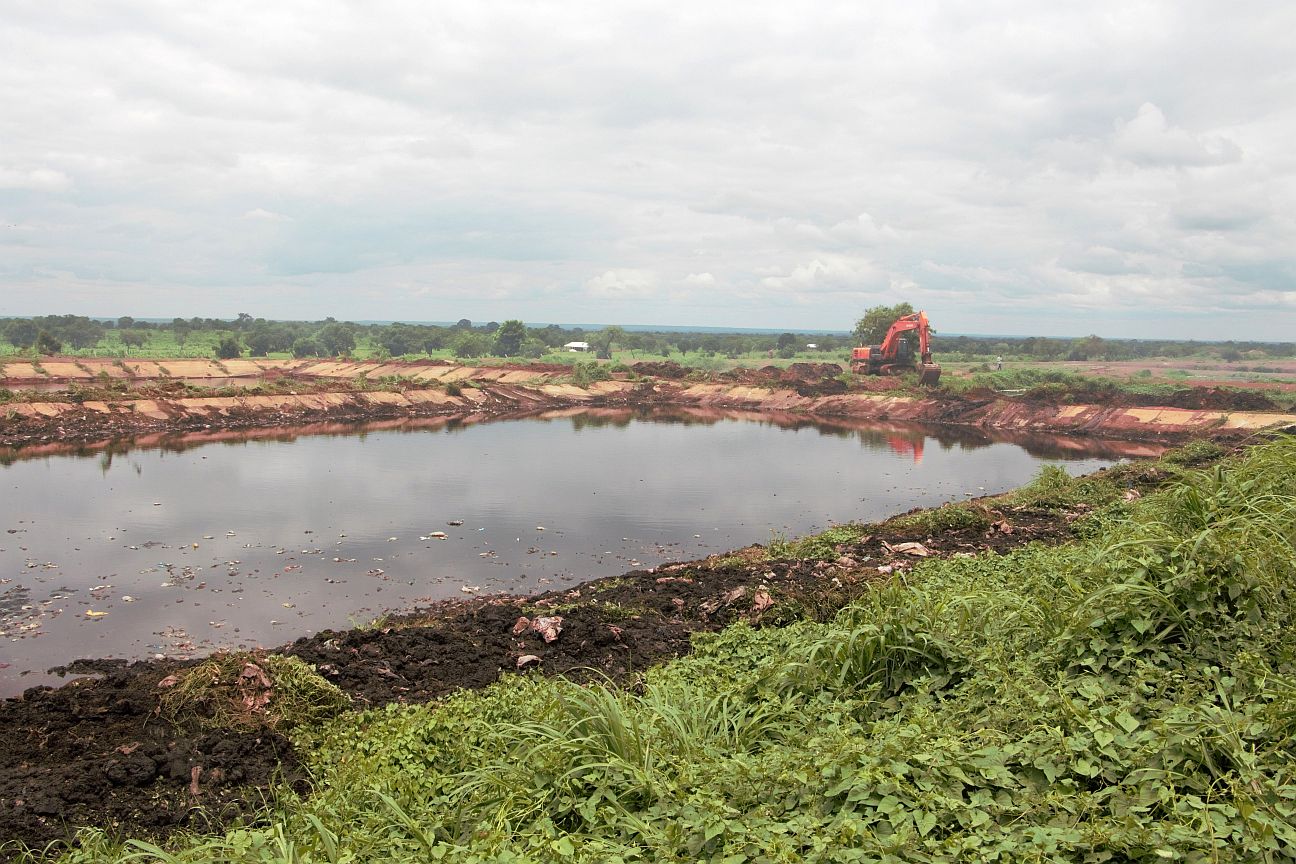
In Sub-Saharan Africa,
80–95% of the population
use onsite sanitation systems that require regular emptying.
Two fishermen on the Weija Lake, Ghana. Photo: Hamish John Appleby / IWMI
Based on market demand, the treated sludge material could be commercialized in its basic form. However, it could also be enriched with minerals to enhance its nutrient content, and may be converted into pellet form to create Fortifer™, a safe and effective organo-mineral fertilizer with the potential to be competitive on the Ghanaian market.
[slideshow_deploy id=’46994′]
“Most often, recommended wastewater treatment plants require a lot of energy, and if we’re trying to conserve then we look at alternatives. We also need to come up with sanitation practices that are less dependent on water.”
The Fortifer™ compost pellets, which meet the international safety standards set for composts by the World Health Organization (WHO), are easy to handle and transport. Evidence also suggests that the pellets are more effective than powder in facilitating gradual nutrient release into the soil over time, potentially reducing the number of required applications.
As highlighted in the diagram below, there are many different ways waste can be converted into a productive material. In addition to human excrement, for example, animal manure and organic components of municipal waste can also be transformed to nutrient-rich material that can be used as plant fertilizer, soil conditioner, animal feed, and other useful products.
A sanitation chain encapsulates all aspects of fecal matter, ranging from the collection of the excreta to the treatment of the waste to the use of whatever end product the fecal matter has been transformed into.
Thankfully, diverse solutions exist all along the sanitation chain to facilitate waste reuse, says Cofie, who adds that “other things we can rethink include composting, combusting, and incinerating (or charring) waste to make it usable as fertilizer, or converted into energy, such as biogas.”
Exploring market potential for a new type of fertilizer in Ghana
There is indeed a need within the country for fertilizer that is both sustainable, effective, and affordable. In the past, leading factors preventing Ghanaian farmers from making greater use of fertilizers have included high prices, lack of suitable credit offerings to secure fertilizers when needed, and a lack of convenient places to buy fertilizer.
For that reason, as IWMI, WLE, and partners developed Fortifer™, potential key customer groups were simultaneously identified, including Individual farmers growing plantation crops, smallholder farmers in organized groups, and farmers in irrigation schemes linked to the Ghana Irrigation Development Authority.
Urban farms produce
up to 90%
of the fresh vegetables consumed in cities: the majority of vegetables are irrigated with polluted water.
Red chili pepper, Tuba Irrigation Scheme, Ghana. Photo: Hamish John Appleby / IWMI
After extensive, multi-season field trials conducted by IWMI, WLE, and partners, Fortifier™ has proven effective in contributing nutrients and organic matter that promote the growth and yield of a wide range of cash crops, including okra, tomatoes, green peppers, cabbage, lettuce, maize, and rice. Moreover, farmers who participated in the field trials have also consistently stated their willingness to pay for locally produced organic fertilizers such as Fortifer™, further hinting at the product’s untapped market potential.
“Made through processing of human and organic solid waste, the product is a safe, nutrient-rich compost which the production plant will sell in powder and pellet forms,” Cofie says.
“This product kills two birds with one stone: It is a material we need for enhancing the soil organic matter for crop production, but also helps to manage waste output which would otherwise cause environmental pollution.”
Acknowledging potential limitations with the current business model
The sanitation sector in Ghana and elsewhere offers many opportunities for social business models that can improve living conditions, and Fortifer™ is one of those products. After all, not only does Fortifier™ treat human waste, it also provides an opportunity that can spur job creation, strengthen public health, and limit environmental contamination all at once.
However, to ensure widespread uptake of Fortifier™, leveraging both public and private capital will be necessary, but the attractiveness of the business model will depend on the potential for cost recovery through sales of products. Why? Because for some smallholder farmers, alternative options can be cheaper and highly subsidized in some regions. Consequently, the incentive to begin regularly using Fortifer™ may not be immediately obvious to some potential customers.

Production of Fortifer™ requires specialized expertise and an adaptive approach beyond the typical waste management. Meanwhile, promoting the adoption of Fortifer™ requires knowledge around the correct price, availability of credit-based transactions, an understanding of the nutrient content, and training to correctly apply the fertilizer.
Sharing this knowledge through workshops run by trusted third party entities, such as government authorities, has been effective in Ghana to date. Studies have shown that other farmers and countries would expect similar engagement from trusted third parties before committing to a roll out of the product.
The approach to treat fecal sludge while also producing Fortifer™ is now tested by IWMI and Partners in five countries, with more to follow. The list of current countries includes Sri Lanka, Ghana, India, Bangladesh and Burkina Faso.
IWMI’s role is not to replicate Fortifer™ production in other countries, but rather raise awareness of its potential for improving fecal sludge management and to provide knowledge support to local institutions who could take this to scale in given context.
Despite limitations, Fortifer™ offers a promising solution for growth, profit, and environmental sustainability. Going forward, the commercialization of waste-based fertilizers like Fortifer™ can generate significant benefits by developing waste-based economies and ensuring that smallholder farmers have reliable access to affordable, environmentally friendly fertilizer — now, and well into the future.
To read more about Fortifer™, visit our website, or read our summary sheet: Where there is muck there is gold.


